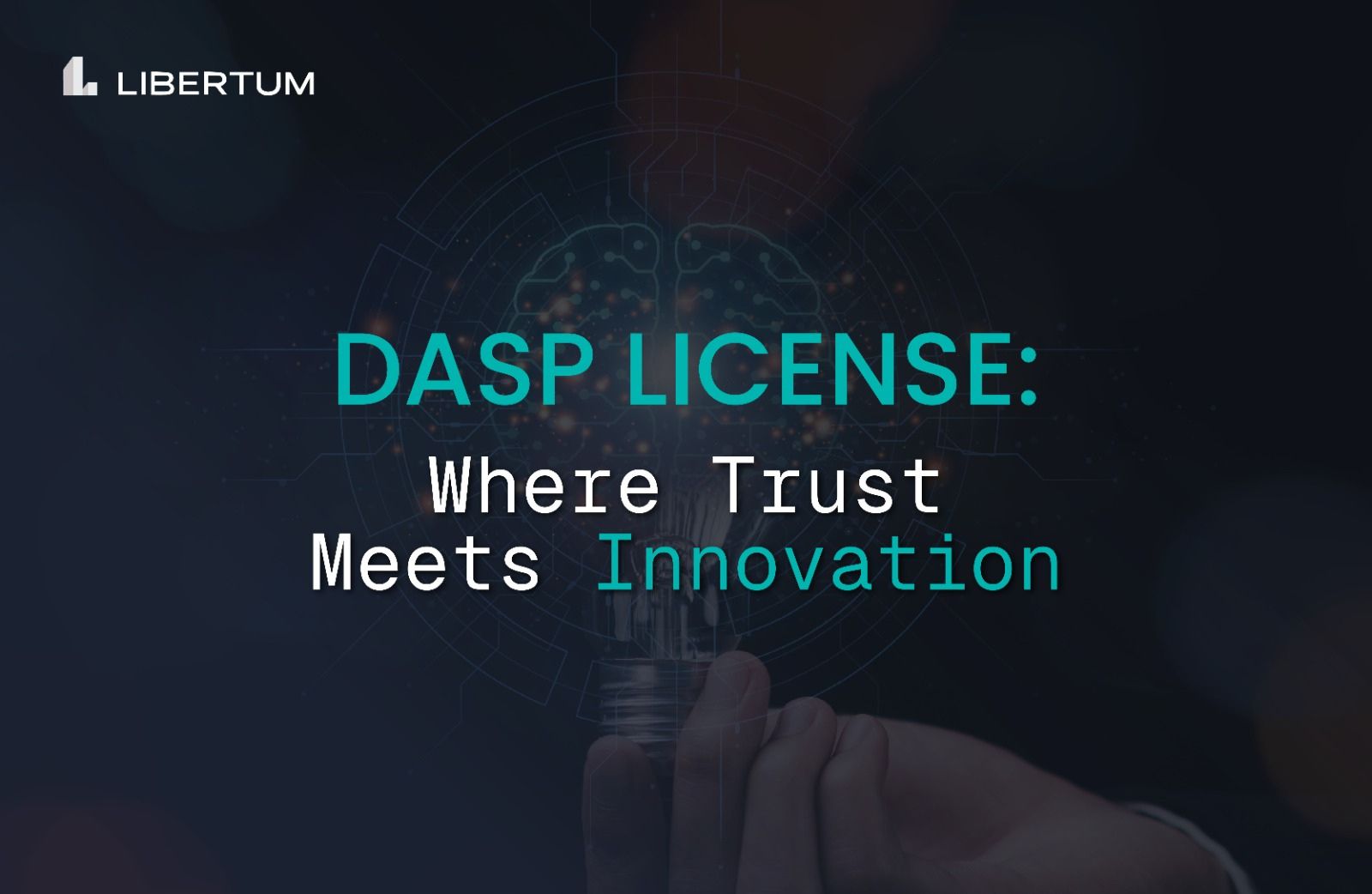The Pattern of Every Technological Era
Every technological revolution follows a familiar rhythm — the initial rush to build, the chaos that follows growth, and finally, the rediscovery of structure. The digital asset industry is no exception. Innovation surged forward while crypto regulation struggled to keep pace. For a time, the market thrived in a vacuum — dynamic, profitable, but unstable.
Yet history always reasserts its balance. No system built on uncertainty can sustain prosperity. The cycle inevitably reaches a point where structure becomes not a burden but a necessity.
Libertum’s Philosophy: License First, Then Scale
At Libertum, we’ve chosen to move differently — license first, then scale.
This approach is more than a regulatory decision; it’s a mindset rooted in patience, responsibility, and permanence.
For digital assets to integrate seamlessly into the global financial fabric, they must first exist within a framework that commands institutional credibility and legal recognition.
A DASP license is not just documentation; it is a declaration of intent.
It sends a clear message: we are not building in the shadows; we are building within the light of law.
El Salvador’s DASP License: A Blueprint for the Future
El Salvador’s Digital Asset Service Provider license represents a turning point in how nations can embrace structured innovation.
The country’s DASP regime demonstrates what’s possible when governments choose to enable progress rather than restrict it.
This framework is more than a regulatory achievement; it’s a cultural transformation. It acknowledges a fundamental truth: trust and technology must evolve together.
Innovation without oversight becomes chaos.
Oversight without innovation becomes stagnation.
El Salvador’s decision to formalize crypto compliance through the DASP framework shows how balance can be achieved where creativity thrives inside clear, enforceable boundaries.
The Power of Clarity in Crypto Regulation
When we pursue a DASP license, we’re not merely ticking boxes for compliance.
We are seeking clarity — clarity about what defines an asset, how investors are protected, and where responsibility lies among issuers, traders, and custodians.
That clarity is the foundation upon which true scalability is built. It replaces ambiguity with structure and transforms risk into reliability.
Because scaling a regulated crypto business isn’t just about moving fast — it’s about moving far.
Real growth endures only when it’s powered by trust, and trust emerges when operations are transparent, compliant, and accountable.
From Speculation to Sustainability
Many blockchain projects have burned brightly but briefly. Fueled by speculation and aggressive marketing, they rose quickly but lacked the structural depth to survive.
The future, however, belongs to platforms that endure — those that attract institutional confidence, integrate with traditional finance, and expand across jurisdictions without fear of contradiction or collapse.
In this new phase, crypto compliance is not an obstacle but an enabler.
It provides the rules of engagement that ensure both innovation and stability can coexist.
Legal Soil for Responsible Growth
El Salvador’s licensing framework offers digital asset providers exactly what the industry needs: the legal soil to grow responsibly.
It bridges the divide between local economies and global capital flows.
For investors, it provides assurance that their assets exist within a recognized and enforceable system.
For innovators, it creates freedom — the freedom to build boldly, knowing the rules are clear and the playing field is fair.
This alignment between innovation and law doesn’t just promote compliance; it cultivates confidence.
Libertum’s Commitment: Regulation as the Foundation of Trust
At Libertum, this philosophy is not only strategic but deeply philosophical.
We don’t view crypto regulation as the end of innovation — we see it as the beginning of legitimacy.
Every product we create — whether a tokenized marketplace, a bonding DEX, or a liquidity engine — rests on the same unshakable foundation: respect for law, respect for users, and respect for trust itself.
That is how we believe sustainable ecosystems are built — not through speculation, but through systems designed to endure.
The Era of Regulated Scalability
The digital asset industry is entering its next evolution — the era of regulated scalability.
Growth will no longer depend on evading oversight but on embracing compliance intelligently.
Nations that recognize this shift, like El Salvador, are positioning themselves as architects of the new financial geography.
This is where the next generation of digital asset innovation will emerge — not in unregulated frontiers, but in jurisdictions where clarity fuels creativity.
Building Fast vs. Building to Last
It’s easy to build fast. It takes vision to build to last.
Sustainable innovation demands patience, clarity, and the humility to begin with structure.
That’s why Libertum starts with the license — because only when trust is formalized can innovation truly scale.
A regulated crypto business is not limited by law — it’s empowered by it.
When compliance becomes culture, innovation finds its true freedom.
The Blueprint for Enduring Innovation
The DASP license is more than a legal requirement; it’s a symbol of the maturity the digital asset industry has long awaited.
It transforms the unpredictable into the sustainable, and speculation into structure.
By committing to license first, then scale, Libertum is helping redefine what responsible innovation looks like — paving the way for a sustainable digital asset economy built on clarity, compliance, and enduring trust.
